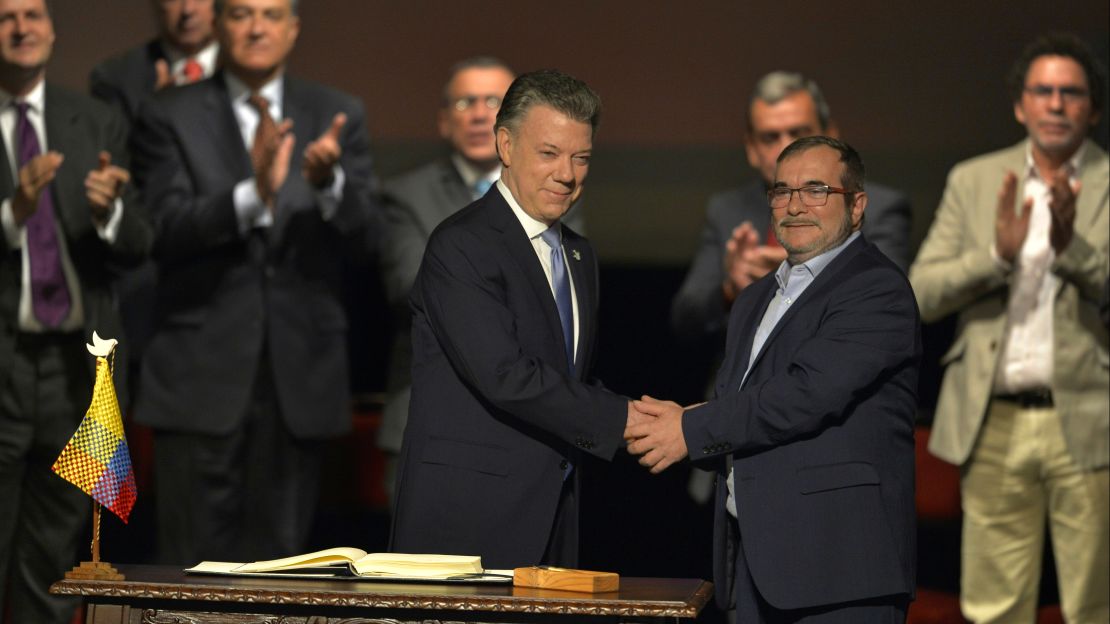Story highlights
NEW: Some slam revisions to the agreement as cosmetic
The revised peace deal now goes to Congress for approval
The rebel leader waved his arms in the air as the crowd cheered. The President smiled at the audience, holding a pen made from bullets.
Both men signed a historic peace agreement, then shook hands.
It was a moment of diplomatic deja-vu. Thursday marked the second time this year that Colombian President Juan Manuel Santos and FARC leader Rodrigo Londo?o have signed a peace deal aimed at ending Latin America’s longest war.

In October, Colombian voters rejected the first version of the agreement in a national referendum, sending negotiators back to the table.
This time, the revised peace agreement will go to Congress for approval.
And it’s likely to pass, since Santos’ coalition holds the balance of power in the legislative body.
“This new accord is better than the one we signed in Cartagena,” Santos said after signing the deal Thursday. “It is better because we picked the hopes and observations of the majority of the people.”
A somber ceremony
In Thursday’s ceremony, the leaders used the same pen they had used to sign the deal the last time around – made from recycled bullets once used in the conflict.

But the ceremony was more somber than the celebration in September, when a choir sang “Ode to Joy” as officials from around the world watched, dressed in white, to symbolize peace.

On Thursday, the crowd chanted, “Yes, it was possible!” after the deal was signed.
Londo?o, better known by his alias, Timochenko, began his remarks Thursday with a declaration of peace: “Let words be the only weapons of Colombians.”
“The people of this country are tired of violence, intolerance and stigmas,” he said. “They want and demand profound change from the political customs that are corruption, lies, and deceit.”
He thanked the Roman Catholic Church and the countries that were involved in years of peace talks in his wide-ranging speech, which even included a message of congratulations for US President-elect Donald Trump.
Critics say changes are cosmetic
The conflict between the Revolutionary Armed Forces of Colombia and the government has gone on for more than half a century and claimed more than 220,000 lives.
Santos was awarded the Nobel Peace Prize this year for “his resolute efforts” to end the civil war, which is the longest running conflict in the region.
But critics are already slamming the new deal.
Alejandro Ordó?ez, Colombia’s former inspector general, called the revised peace deal a “Revlon accord.” He told the Blu radio station that officials only added makeup to the original agreement and are “ignoring the people’s will.”
“It needs to be the people who have the last word,” he said, “not Congress.”

